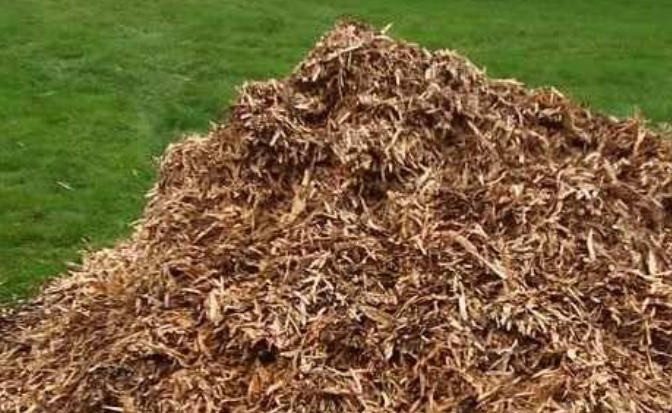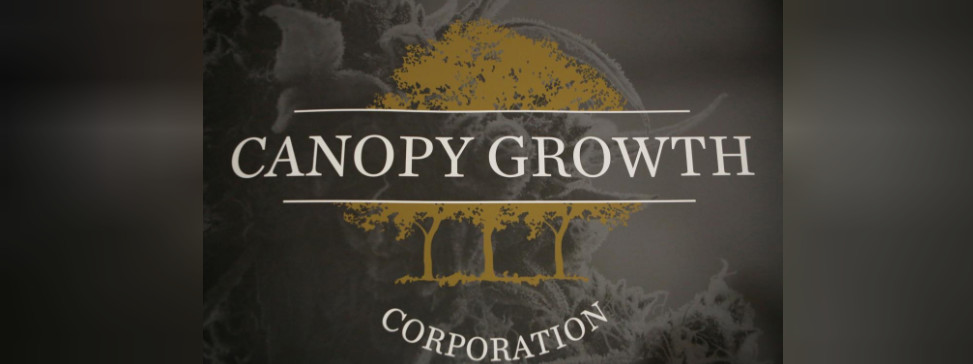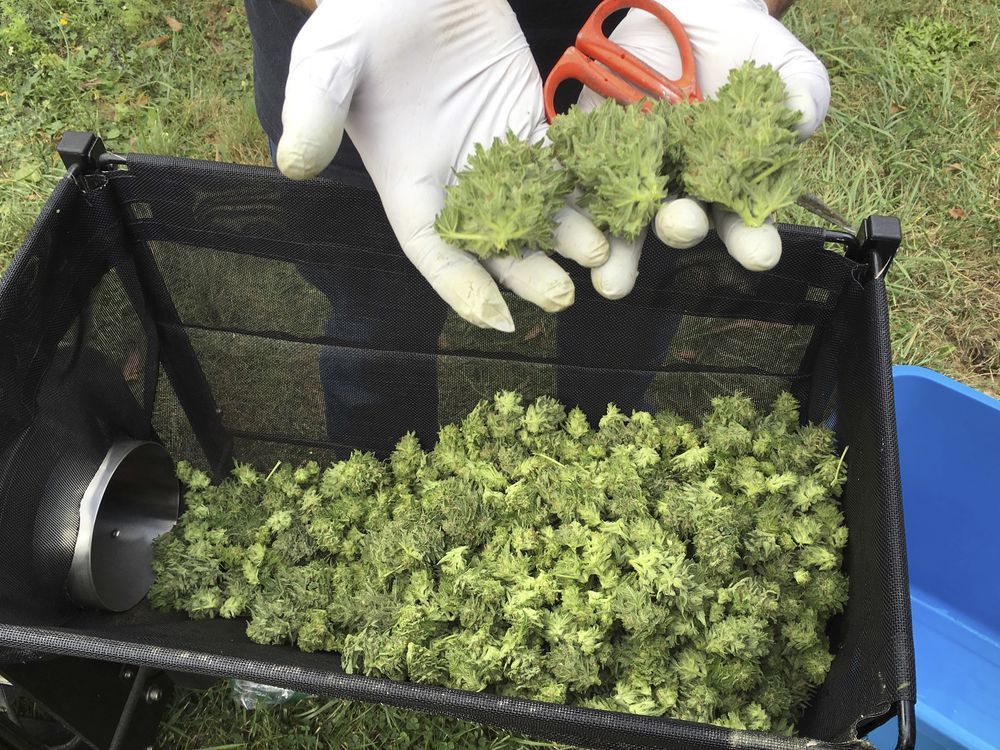In November of 2016, Massachusetts voters legalized adult-use marijuana. Since that time the wheels to retail cannabis outlets have been turning, including on the SouthCoast.
Residents still can’t purchase adult-use marijuana and New Bedford Mayor Jon Mitchell requested and the council approved a moratorium that would prohibit retail marijuana outlets from opening until the end of September at the latest.
Don’t be fooled, though, behind the scenes the blue prints have been sketched and foundations have been laid for entrepreneurs.
“This industry is an entrepreneur’s dream. From a business perspective, there’s opportunity everywhere,” said BASK President of the Board Tim Keogh.
The state’s Cannabis Control Commission has already approved priority license applications for Registered Marijuana Dispensaries and economic empowerment priority applicants.
The SouthCoast has one of each.
Bask, in Fairhaven, is an RMD, already approved to provide medical marijuana. New Bedford’s Tree Beard’s application approval had to meet a list of criteria to qualify for economic empowerment.
And then there’s entrepreneurs orbiting the industry like the founders of Home Grown Academy. Paul Brennan and Jason Cullinan began education courses on all things cannabis in January.
“Whether it’s on the drug development side, or if you want to go out and dress up like a green Santa Claus and hand out cannabis cookies or roll a 100-foot long joint.” said Keogh. “Wherever you choose to allocate your time and effort and whatever excites you, there’s opportunity everywhere.”
BASK
Tim Keogh chuckled as he reminisced back to what is now his nearly decade long involvement in the marijuana industry.
“I have to dig back in the depths,” he said.
As the President of the Board at BASK, Inc. Keogh was a member of the team responsible for opening the SouthCoast’s first medical marijuana dispensary.
To say Keogh’s earned stripes are as old as the legal American cannabis industry itself is a stretch, but not much of one.
His work with cannabis began around 2010 with the Rhode Island Patient Advocacy Coalition. Keogh eventually became a caregiver — a personal caregiver who assists with a registered patient’s medical use of marijuana.
Initially, he didn’t see the climate of the early 2010s producing a stable cannabis industry, but he wanted to help.
“I looked at it as, if people could benefit from safe access to regulated cannabis they should have it,” said Keogh.
He testified at the Statehouse and worked with elected officials, at about the same time Massachusetts passed a ballot initiative to legalize medical marijuana in 2012.
He also attended the Marijuana Business Conference in Colorado — something he credits as the current “gold standard” of cannabis conferences. Keogh said this event served as motivation to bring his work in Rhode Island into his home state of Massachusetts.
Keogh estimated that there were approximately 200 to 300 attendees at the conference. The 2017 iteration of the event, according to the conference website, featured 110 speakers, 18,000 cannabis professionals, and nearly 700 exhibitors.
“It was really the beginning and the formation of the industry as we know it today,” said Keogh. “It was no longer something that I saw as helping out or advocating, I saw it as a potential opportunity to really help drive, shape, and create an industry.”
Fast forward to the early winter months of 2018, BASK opened its doors to patients in the SouthCoast, serving as a dream recognized for the Marion-born Keogh.
“We had seen the benefits of safe, regulated access in Rhode Island and we said, well if we can do this in the area we grew up with wouldn’t that be the ultimate win,” said Keogh.
In applying for a license to open BASK, Keogh began meeting with investors hoping it would present an opportunity to do “something larger.”
“We didn’t know what that was,” Keogh said. “We just knew that small-scale, indoor warehouse production, similar to what we were doing in Rhode Island, was not a scalable model for an industry.”
Over the course of these meetings, Keogh met the owners of AmeriCann, a publicly-traded marijuana company seeking to develop infrastructure across the country. It is headquartered in Colorodo and building a facility in Freetown.
Initially, the interactions started as a sharing of ideas and business ideologies for BASK and beyond, but eventually the organization expressed interest about having Keogh come on board.
Keogh became the CEO of AmeriCann in 2014.
Where BASK allowed Keogh to achieve his goal of bringing a sustainable medical dispensary to the area he grew up in, AmeriCann afforded him the ideological space to think in terms of scale — and therefore growth — for the industry at large.
The organization seeks to aid in building out proper infrastructure for states, and the cannabis professionals in those states, as they roll out their marijuana blueprint.
Enter Freetown.
A 130,000 square foot cultivation facility broke ground in Freetown in February. It should be more than enough space for Keogh’s ideas about sustainability and progress to play out.
The industry spent years escaping basements and crawl spaces that pre-legalization growers were relegated to. Keogh hopes to be a guiding voice in the next frontier of grow operations.
“I disagree with the notion that if you grow something at a larger scale than what’s historically been done, then that somehow cheapens the product,” said Keogh.
TREE BEARD
Jeffrey Pepi’s first experience with marijuana felt like a blur.
Within 15 minutes, he checked into a clinic, met with a doctor and received a prescription for marijuana to treat ADD.
Six years later, he smiled at the fact he still uses marijuana in place of Adderall, but cringed at his experience.
“This is your doctor. This is the person that’s supposed to be giving you parameters,” Pepi said. “So it bothered me.”
Pepi, Hans Doherty and Chris Thistle tried to change that process. The Cannabis Control Commission approved their economic empowerment application last month for their organization Tree Beard LLC set to be based in New Bedford.
It would branch off of their work with Growing In Health, an affiliated business also based in New Bedford that connects patients to doctors who work with medical marijuana.
The organization connects patients with doctors, since Pepi said medical dispensaries can’t be affiliated with doctors.
“We’re going to go for the recreational license and we’re going to use it to educate and still keep it medical even though it’s recreational,” Pepi said.
The trio couldn’t find the investors to front the upwards of $10 million associated with the cost of opening a medical marijuana dispensary.
“Recreational (licenses), very reasonably priced,” Pepi said. “And it’s going to allow us to educate the public about the difference that there is no difference between recreational and medical.”
Currently, Pepi said many of the patients are being referred to BASK in Fairhaven until they open their New Bedford facility, the location of which they didn’t want published.
Doherty began using cannabis when he was 18. Thistle started when he was 13. Each now use marijuana for aiding with headaches and stomach issues respectively.
Pepi retold stories of people they’ve connected with doctors and experienced life changes through cannabis. He remembered one young female patient dealing with seizures. By using cannabis, she experience fewer, he said. He remembered another that dealt with obsessive compulsive disorder, who was suicidal. Pepi said cannabis changed her life.
He’s also met with an elderly woman, whose face lit up when she told him the news she no longer felt pain in her wrist.
“I enjoy finding those people we were able to help,” Pepi said.
Massachusetts offers guidance to businesses like Tree Beard LLC through the Cannabis Control Commission.
Tree Beard qualified for the Social Equity Program, which aims at encouraging full participation in the marijuana industry by people from communities that have been disproportionately harmed by marijuana prohibition.
The state views New Bedford as an “area of disproportionate impact.” Since Pepi and Thistle have lived in New Bedford for five of the past 10 years, they qualify for the program. The CCC will assist in the following areas:
- Management, recruitment and employee trainings;
- Accounting and sales forecasting;
- Tax prediction and compliance;
- Legal compliance;
- Business plan creation and operational development;
- Marijuana industry best practices;
- Assistance with identifying or raising funds or capital.
The Social Equity Program is similar to the economic empowerment priority license the CCC approved for Tree Beard.
“The process was pretty smooth, honestly,” Pepi said. “I’m very for the CCC. They’ve done an amazing job.”
HOME GROWN ACADEMY
Paul Brennan, a biologist turned landscaper, met Jason Cullinan, a veteran, at last year’s Freedom Rally in Boston, one of the oldest pro-cannabis rallies in the country.
Brennan already knew Cullinan’s wife. Cullinan knew the wife of Brennan’s cousin. Everyone around them knew the two needed to connect.
But even after their introduction last fall, they didn’t start Home Grown Academy in Carver until December — only after Cullinan and Brennan showed interest in the same office space.
“I was saying, you’ve got to be kidding me. It was meant to be,” Cullinan said. “I told him, ‘I don’t want to compete with you, I was wondering if we could combine resources.’”
Brennan promoted cannabis education through a position at New England Grassroots Institute of Dedham, which educates people on medical marijuana and providing safe and legal access to it. Cullinan worked in the private sector and used cannabis as a military veteran dealing with post traumatic stress disorder.
The two opened Home Grown Academy with education in mind.
“We see a lot of confusion in all these towns,” Cullinan said. “A lot of craziness going on.”
“A lot of reefer madness,” Brennan chimed in.
“Exactly,” Cullinan continued. “And it’s just because of a total lack of understanding.”
Home Grown provides classes that involve an array of topics but all pertain to marijuana, from the history of cannabis to best practices for home growers. They even provide medical advice to those seeking it.
Many of the classes are scheduled on Friday, Saturday or Sunday. They provide military, law enforcement and hardship discounts. Patient consultation visits are free.
“It’s such a good feeling that we’re doing something good,” Cullinan said. “We haven’t really thought about the long term in how we’re going to make it a very profitable business but right now our goal is just to keep doing what we’re doing and have fun doing it.”
Storing the revenue they do make created an obstacle course of hurdles.
“It was the hardest thing finding a bank because once they hear the word cannabis, they’re like, ‘No we can’t do it.’” Cullinan said.
Eventually, they found a bank that explicitly said they can consult on cannabis but they cannot profit off of sales.
“Although, we are a cannabis business, but we’re not,” Brennan said.
Those who show up for classes have consisted of a very diverse group, Brennan said, including veterans, men and women, all races and ages from 20s up through the 80s.
“It’s been an Easter basket of greatness,” Cullinan said.
The one demographic that has been absent: college-aged students.
“Certainly, none of the college age, party age, the stereotypical stoner,” Brennan said. “What we’re seeing is more people who don’t have the exposure necessary to all that culture by virtue of being young.”
Brennan and Cullinan want to provide outreach to that older demographic. They both said senior citizens may benefit the most from marijuana in fighting everything from cancer to Alzheimer’s to arthritis and even pain.
“They are the prime candidate that would gain the most benefits,” Cullinan said.
And they aren’t necessarily suggesting smoking.
“It could be vaporinzing or eating it as an edible or dabbing it as a concentrated oil or hash, or it could mean taking a suppository of highly concentrated fully extract cannabis oil to target cancer,” Brennan said. “Any of these methods of ingestion for any of it’s possible uses.”
It’s improbable that a patient could produce their own pain medicine or chemotherapy. However, Home Grown Academy envisions a world where it will be possible.
Instead of paying the high cost of prescription drugs, their students could grow their medicine.
Through Brennan’s experience, he has known of some patients needing up to two ounces a week. He said that would cost up to $700 a week.
“If I can help you grow it at home for a minimal investment, then it’s kind of the whole, teach a man to fish scenario,” Brennan said.
He also doesn’t see the adult-use marijuana industry being dominated by a Budweiser or Marlboro-type conglomerate. Instead, he compared it to the craft beer phenomenon.
“The home grown is the connoisseur level,” Brennan said. “That’s the good stuff these days. We want everybody on the homegrown level.”
It’s a world of entrepreneurs rather than stoners.
“The cannabis industry, right now, is the fastest growing industry in the United States,” Brennan said. “It’s a multi-billion dollar industry, being forfronted by multi-million dollar corporations. Guarantee you, every one of those CEOs of those multi-million dollar corporation smokes a lot of cannibas. You don’t run a multi-billion dollar industry from your mom’s couch eating Doritos playing Call of Duty.”
Credit: southcoasttoday.com













